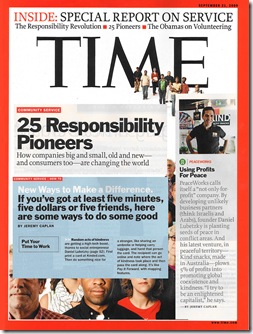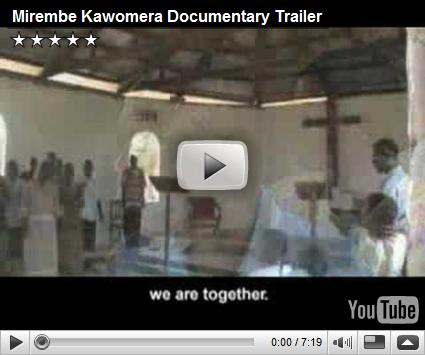As we made our way from London to Madrid to escape the volcanic ash clouds and fly back to the US last month (see twitter journey report starting here, and see pictures here), and drawing from experiences when setting up PeaceWorks ventures and traveling through undeveloped parts of the globe, here are 10 tips for emergency travel:
1. Think Outside the Box: The irony of the volcanic eruption in Iceland is that while most of Europe was enveloped by the ashes – the one airport that continued working at full force was…in Iceland!
2. Research and Plan up front: Careful evaluation of options can save time down the road. Since getting a head start is of the essence during crises, try to parallel process – search on the web while on hold with airlines, ask family, friends or team members to research a particular leg of the trek or travel option. Paul and Allison researched ferries while Ian helped find car, and Adeena booked air reservations. Rely on network knowledge: Skoll entrepreneurs exchanged info via email. Search twitter, facebook, primary sources on web and news sites. Don’t assume one website is definitive. A lot of misinformation also abounds (see below).
3. Just Do It: don’t be paralyzed by options or by the possibility of a wrong decision. You lose much more from total inaction. Like in real life, you can be lucky, but you can also make your luck by just showing up. We feared the ferries and the trains would be so overbooked and we wouldn’t find a spot (because websites and news reports warned all were sold out). We showed up and they were 50% empty!
4. Prepare for Bad Scenarios: Write essential info like key contact #s or confirmations on paper – in case your pda or phone runs out of battery. Carry always essentials with you – such as a mini-first-aid-kit, even if just a couple of pills for each ailment. Carry emergency cash in some secret compartment. Some tissues or toilet paper in your back pocket…
5. Carry Alternative Electric/Web Connection Options: at a minimum this should mean a multi-purpose electric outlet converter; some car chargers can be life-savers and don’t add much space; an unlocked phone with refillable sim cards for the countries you visit can be very useful – not so much for outgoing calls because the rates are almost as exorbitant as if roaming from the US, but because they allow free incoming calls. A US phone with international service for back up is also critical. A wi-fi ready device is the minimum you need; an ethernet cable can be useful; a Verizon-type internet source from phone network can be handy.
6. Travel flexibly/lightly: A carry-on suitcase multiplies the flexibility for flight changes. Layers of clothes allow you to be comfortable in changing temperatures. A sweater for the plane can be very handy. Phone cos can change plan as you travel.
7. Nice to haves can make a difference: noise canceling headphones, extra pair of warm socks. Take off your shoes on long rides. Pack an Eye mask always – make all the fun you want, but when you are stuck at 6am traveling on car and sleepy, it is an awesome savior.
8. Charge Up When You Can – maximize your staying power – Juice up your computer and phone/pda whenever possible – you never know when you’ll be stuck without electricity. An extra battery is useful, and you should work on power-saving mode when traveling. Also rest your body well and sleep as much as possible before a long journey. Take a nice good shower and a healthy hearty meal before long travel.
9. Carry something to KIND others: Being able to give a little treat to strangers can make a big difference. I bring KIND bars with me, not just to snack for myself but as a way to give out to people stranded also, or to people that can give you a hand – at the checkout counter of an airline, etc.
10. Deploy Alliances – Traveling with someone is not just more pleasant; pairing up can help you coordinate – one watches bags while other searches for option, or one buys food while other gets tickets, and is more likely to yield support from others who won’t think you are a stalker; while most people can’t control the passport they carry, not all passports are created equal – and the ones from nations with most pre-cleared no-visa-requirement access can be huge assets. Develop a bond and loyalty with your preferred airline – loyalty programs come very handy in times of crisis – they set up emergency hotlines and will try to help their passengers find alt. routes. And get local tel #s from your airline so you are not calling long-distance (toll-free #s from abroad are treated as long-distance calls).
More ideas? Post them in comments…

















 Fruit + Nut for years. They’re all-natural bars chock full of nutrients and flavor. You can actually see whole pieces of nuts and fruit all mashed together and sweetened with a touch of honey. It’s an all-star bar, and now the new variety, KIND PLUS, has even more added nutrients such as calcium and antioxidants. Both are great snacks for in-between meals.
Fruit + Nut for years. They’re all-natural bars chock full of nutrients and flavor. You can actually see whole pieces of nuts and fruit all mashed together and sweetened with a touch of honey. It’s an all-star bar, and now the new variety, KIND PLUS, has even more added nutrients such as calcium and antioxidants. Both are great snacks for in-between meals.